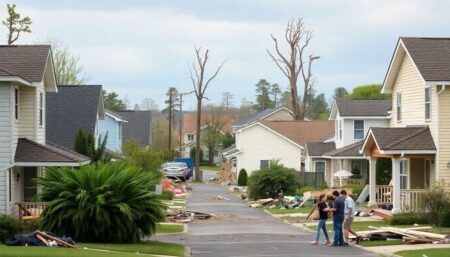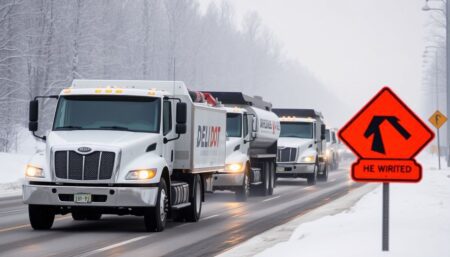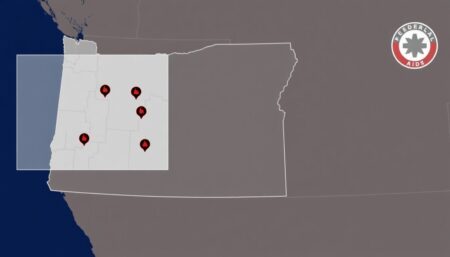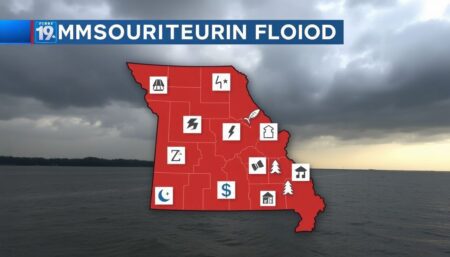In a move that has left many North Carolinians on the edge of their seats, the state’s Republican-controlled legislature has overridden Gov. Roy Cooper’s veto of Senate Bill 382, a controversial disaster relief bill that has sparked heated debates across the political spectrum. But what does this mean for the Tar Heel State, and how can residents prepare for the potential impacts of this legislation? Let’s delve into the intricacies of this political drama and explore what you can do to prep for similar situations.
The North Carolina disaster relief bill, Senate Bill 382, was designed to provide much-needed funds for communities ravaged by natural disasters. However, the bill’s provisions extended far beyond disaster relief, touching on contentious issues such as election laws and environmental regulations. Gov. Cooper, a Democrat, vetoed the bill, arguing that it was a ‘partisan power grab’ that would hinder the state’s ability to respond effectively to disasters. But with a Republican supermajority in the North Carolina Legislature, the veto was swiftly overridden, leaving many residents wondering what the future holds.
So, why should you care about this political wrangling? Because the outcome of this legislative tussle could have significant implications for your safety and well-being. Disaster relief funds are crucial for helping communities recover from natural disasters, and any legislation that impacts these funds could leave you vulnerable in times of crisis. Moreover, the political climate surrounding this bill serves as a stark reminder that prepping isn’t just about stockpiling supplies
- it’s also about staying informed and engaged with the political processes that shape your world.
In this article, we’ll take a closer look at the North Carolina disaster relief bill and the political landscape that surrounds it. We’ll explore the potential impacts of the legislation on disaster preparedness and response, and we’ll provide you with practical tips on how to prep for similar situations. Whether you’re a seasoned prepper or just starting out, this article promises to arm you with the knowledge and tools you need to navigate the complex world of disaster relief and politics. So, buckle up and get ready to dive into the fascinating
- and sometimes fraught
- world of disaster prep in the age of political polarization.
As Hurricane Recovery Stalls, Power Struggle Intensifies in Raleigh
In the wake of the devastating hurricane that swept through Raleigh, the city finds itself in a state of limbo, grappling with the slow pace of recovery. The once bustling metropolis now echoes with the hum of generators, a grim reminder of the power outages that have persisted for weeks. The city’s residents, initially united in their resilience, are beginning to feel the strain of the prolonged blackout. Tensions are rising as the power struggle intensifies, not just over resources, but also over the city’s future.
The lack of progress in restoring power has exposed fault lines within the city’s leadership. Accusations are flying between city officials and the power company, each pointing fingers at the other for the slow response. The city council is divided, with some members calling for immediate action, while others advocate for a more cautious approach. The mayor, meanwhile, is walking a tightrope, trying to balance the demands of her constituents with the realities of the situation.
The power outage has also led to a surge in grassroots initiatives, as residents take matters into their own hands. Neighborhood watch groups have morphed into community support networks, with people sharing resources and knowledge to help each other survive. However, these efforts have also sparked debates about fairness and equity, as some communities have access to more resources than others.
As the power struggle intensifies, one thing is clear: Raleigh’s recovery will not be a quick or easy process. It will require not just political will, but also community resilience and a collective commitment to rebuilding a more sustainable and equitable city. The hurricane may have passed, but its impact continues to shape the city’s future, one power struggle at a time.
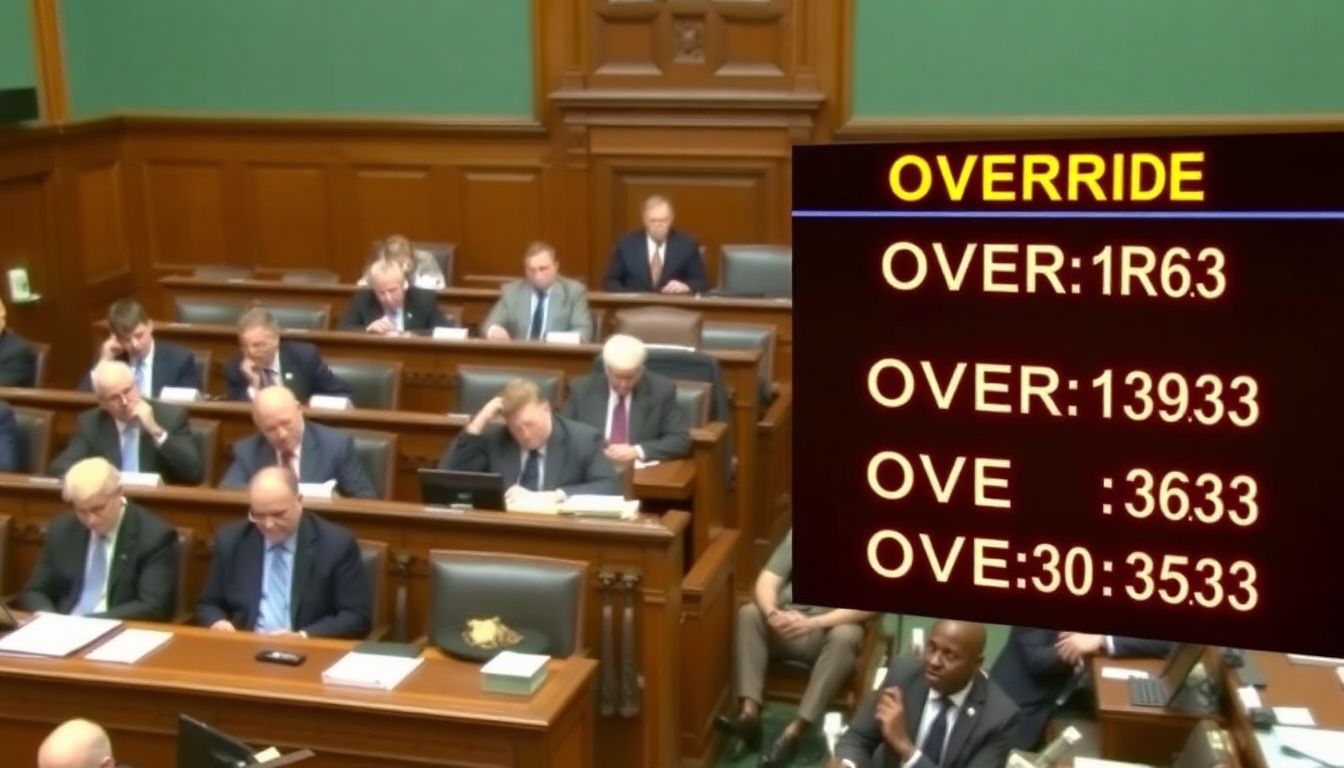
The Veto Override: A Political Showdown
The North Carolina General Assembly, a grand stage set in Raleigh, was the epicenter of a political drama that unfolded on a chilly Tuesday afternoon. The House of Representatives, with its ornate wooden benches and hushed atmosphere, buzzed with anticipation as the members took their seats. The air was thick with tension, for today was the day the Republican supermajority would attempt to override Governor Roy Cooper’s veto on a contentious bill.
The bill, a hotly debated piece of legislation, had been a lightning rod for controversy. Governor Cooper, a Democrat, had vetoed it, citing concerns that it overstepped the bounds of state authority. But the Republicans, with their comfortable majority in both the House and the Senate, were determined to see it enacted into law.
The override vote was a stark display of party lines. The Republicans, united in their support of the bill, stood together, their faces a mix of determination and anticipation. The Democrats, meanwhile, were a sea of somber faces, their votes a united front against the override. The vote was swift and decisive. The Republicans, with their supermajority, easily overrode the veto, the bill becoming law with a resounding thud.
But as the gavel fell and the cheers from the Republican side echoed through the chamber, a shift in the political landscape was already underway. In 2025, Democrat Josh Stein, the current Attorney General, is set to succeed Cooper. The upcoming gubernatorial race promises to be a hotly contested affair, with the Democrats eager to reclaim the governor’s mansion and the Republicans equally determined to maintain their grip on power.
As the political drama in Raleigh continues to unfold, one thing is clear: the power dynamics in North Carolina are shifting, and the state’s residents are watching, waiting, and preparing for the political showdown that lies ahead.
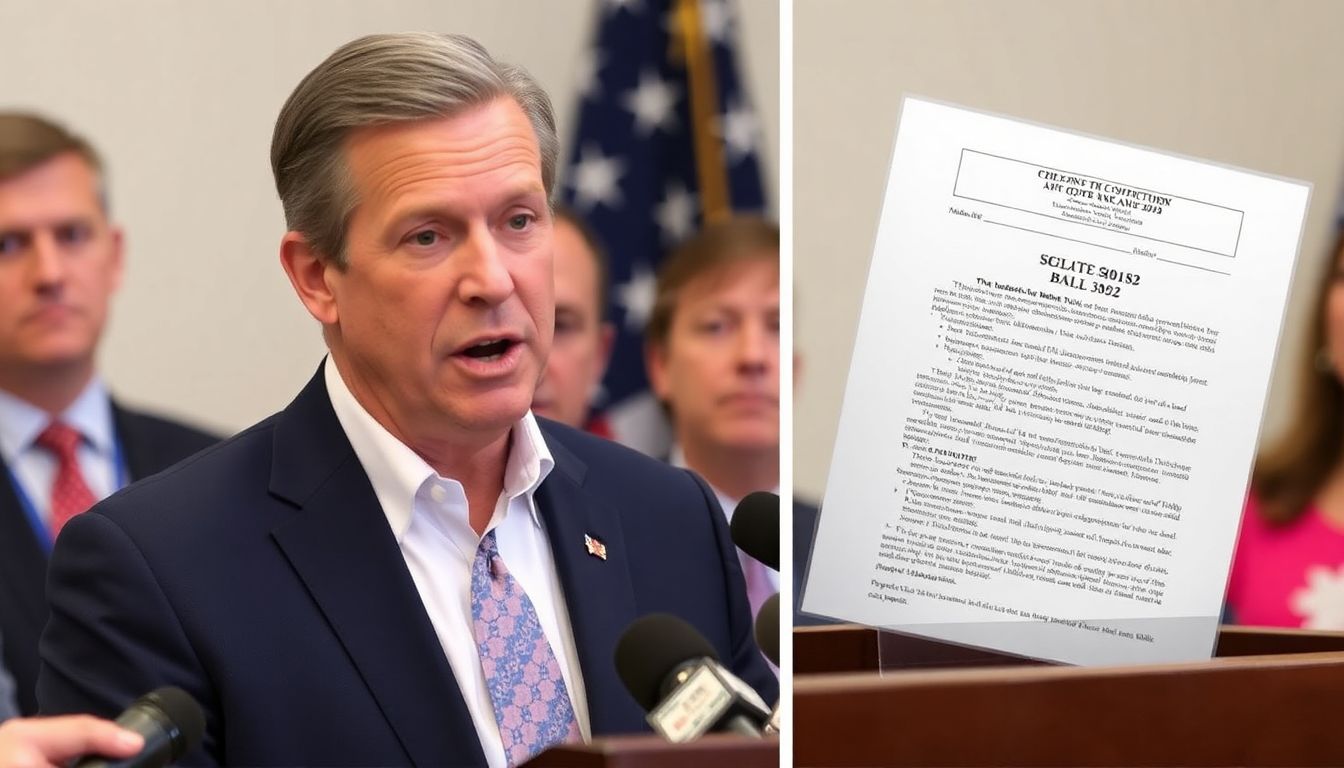
Cooper’s Rebuke: A ‘Sham’ Bill and Power Grab
Detail Gov. Cooper’s response to the veto override, focusing on his description of the bill as a ‘sham’ and a power grab. Discuss the specific provisions he objects to, such as the transfer of judicial appointments and the reduction of executive branch powers.
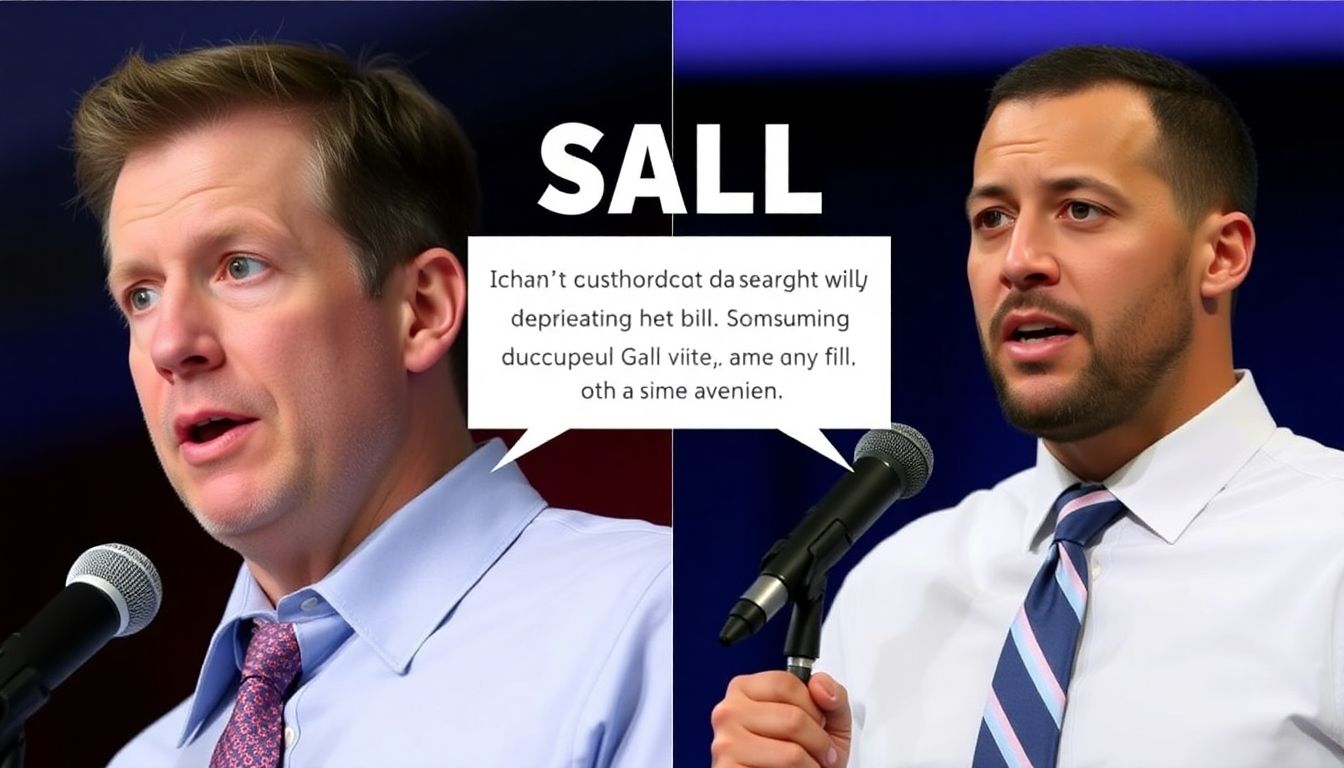
Stein and Harrison: Democrats Voice Outrage
In a display of political tension, Attorney General Josh Stein and Democratic National Committee Chair Jaime Harrison recently expressed their outrage over a Republican-led veto override. The override, they argued, was not just a political move but a blatant display of power-hungry motives and political pettiness on the part of Republican lawmakers.
Their reactions echoed a sentiment of frustration and disbelief. Stein, in a stern statement, accused the Republicans of prioritizing political gain over the well-being of their constituents. He argued that the override was a clear indication of their disregard for the democratic process and the will of the people. Harrison, on the other hand, took to social media to express his dismay, labeling the override as a ‘shameful’ and ‘short-sighted’ move that would only serve to divide the nation further.
Stein and Harrison were not alone in their accusations. They were joined by a chorus of Democratic lawmakers who saw the override as a power play rather than a genuine effort to serve the public interest. They pointed out that the overridden bill had been vetoed by the governor for valid reasons, and the Republicans’ insistence on pushing it through was a clear sign of their disregard for these concerns.
In response to this political drama, many are wondering what can be done to prevent such situations in the future. Here are some steps that could be taken:
- Encourage bipartisan dialogue and cooperation to ensure that the interests of all citizens are represented.
- Strengthen the veto power of the executive to prevent legislative overreach.
- Promote transparency and accountability in political processes to discourage political pettiness and power-hungry motives.
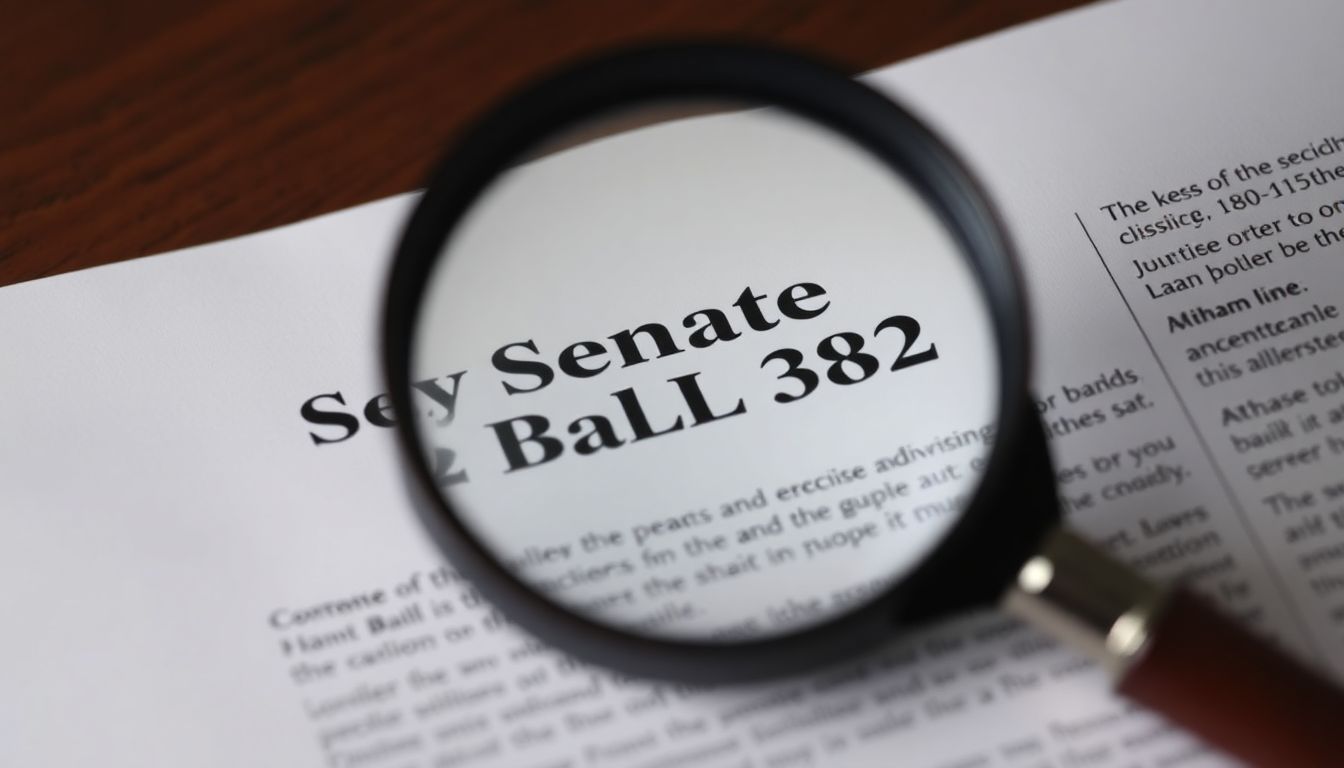
The Bill’s Contents: More Than Meets the Eye
Provide an overview of the 132-page Senate Bill 382, explaining its stated purpose and the various changes it proposes. Discuss the discrepancy between the bill’s title and its actual contents, as well as the impact of its provisions on disaster relief efforts and executive branch powers.
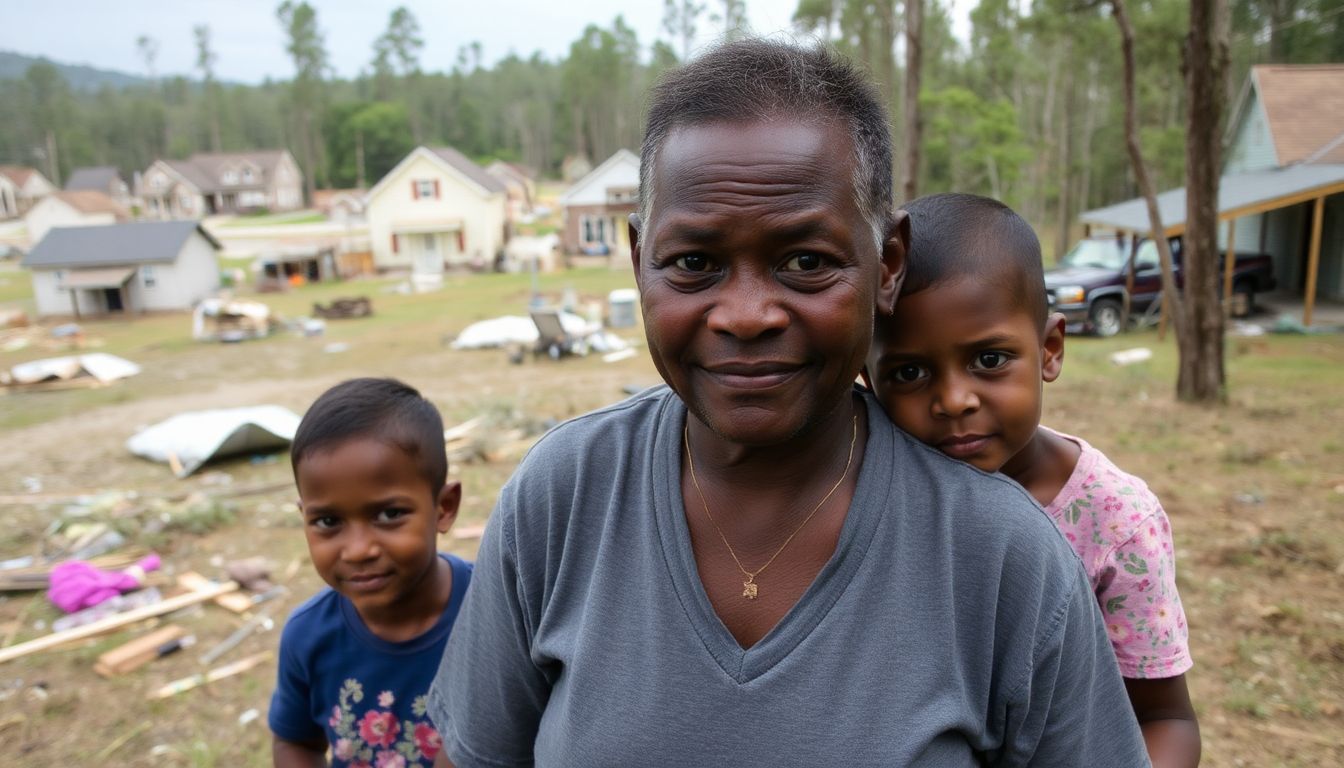
Hurricane Helene’s Aftermath: The Urgent Need for Relief
Hurricane Helene’s Aftermath: The Urgent Need for Relief

Prepping for the Storm: Lessons for Survivors and Lawmakers
Prepping for the Storm: Lessons for Survivors and Lawmakers

Prepping for Political Storms: How to Survive and Thrive
Prepping for Political Storms: How to Surive and Thrive

Prepping for Natural Disasters: Lessons from Hurricane Helene
Prepping for Natural Disasters: Lessons from Hurricane Helene
FAQ
What is the North Carolina disaster relief bill, and why was it controversial?
Why did Gov. Roy Cooper veto the disaster relief bill?
How did the Republican supermajority in the North Carolina Legislature override Gov. Cooper’s veto?
What are the key changes in the disaster relief bill that were subject to the veto override?
- Requiring legislative approval for certain disaster spending above $10 million.
- Limiting the governor’s ability to declare a state of emergency without legislative approval.
- Establishing a legislative committee to oversee disaster spending.
These changes were seen as an attempt by the Legislature to assert more control over the executive branch’s emergency powers.
How might these changes impact future disaster response and recovery in North Carolina?
What can North Carolina residents do to prepare for future disasters, given these changes?
- Stay informed about weather conditions and other potential hazards in your area.
- Develop a family emergency plan and practice it regularly.
- Assemble an emergency supply kit with essential items such as water, non-perishable food, medications, and important documents.
- Secure your home and property by taking steps like installing storm shutters, trimming trees, and reinforcing your roof.
- Consider purchasing flood insurance, as standard homeowners insurance typically does not cover flood damage.
By taking these proactive steps, you can help ensure your family’s safety and well-being in the event of a disaster.
How can North Carolina residents stay engaged in the political process regarding disaster preparedness and response?
- Educate yourself about the issues and the positions of your elected officials.
- Attend public meetings and hearings to voice your concerns and ask questions.
- Contact your representatives to express your opinions and share your experiences with disasters.
- Join local advocacy groups or volunteer organizations focused on disaster preparedness and response.
- Participate in local elections and support candidates who prioritize these issues.
By staying engaged, you can help shape the policies and practices that will keep your community safe in the face of disasters.



